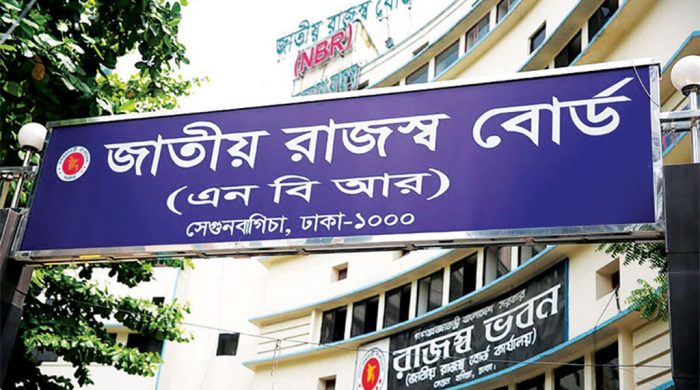IMF for NBR reforms, abolishing tax waivers

- Update Time : Monday, April 29, 2024
- 24 Time View

The visiting International Monetary Fund mission on Sunday recommended around half a dozen measures, including administrative reform in the National Revenue Board and the abolishment of tax benefits to industries.
It also wanted the measures to be included in the upcoming budget for FY25, said officials.
The IMF, now in the capital on a fortnight-long tour until May 8, gave the recommendations in a meeting with NBR officials as part of the higher revenue mobilisation effort.
NBR has been given the target of generating revenue at 0.5 per cent of gross domestic product every financial year under the programme period that will end in May 2026.
Hiccupped by the dollar shortage, the government sought $4.7 billion in loans from the IMF to overcome the sharp downturn in overall economic activity.
Since January 2023, the IMF has disbursed $1.1 billion, while the next tranche linked to the current visit is due in the next month.
During the meeting, IMF officials said that reforms in all NBR wings – Income Tax, Value Added Tax and Customs—are imperative for the government to increase the tax-to-GDP ratio, now considered one of the lowest in the world.
The IMF also identified areas where NBR should focus in the upcoming FY25 for higher revenue mobilisation and to reduce government dependency on borrowings.
It wanted NBR to abolish tax expenditures on clothing, footwear, liquefied petroleum gas, and mobile phones.
NBR officials calculated that around 33 industrial sectors enjoy income tax waivers and cause revenue losses accounting for 3.56 per cent of national GDP, higher than any other lower-income countries’ maximum tax expenditure limit.
South Asian, Sub-Saharan African, East Asian, and Pacific countries’ maximum tax expenditure limit is between 2.1 and 2.7 per cent of their national GDP, according to a report published by the National Board of Revenue in 2023.
The IMF, however, said that the tax exemption facility for eligible persons for the expansion of information technology should be expanded beyond June 2024.
It wants an imposition of 15 per cent VAT instead of truncated VAT on businesses with Tk 3 crore annual turnovers and the elimination of the VAT cap on entertainment and meals.
It also wanted NBR to abolish the depletion allowances provided for petroleum and mining extraction.
The IMF also held a meeting with Bangladesh Bank officials on the same day.
The meeting mainly focused on BB’s safeguards assessment, through which the IMF would review the central bank’s governance and control framework.
Five key areas under assessment are the external audit mechanism, legal structure and autonomy, financial reporting, internal audit mechanism, and the system of internal controls.















